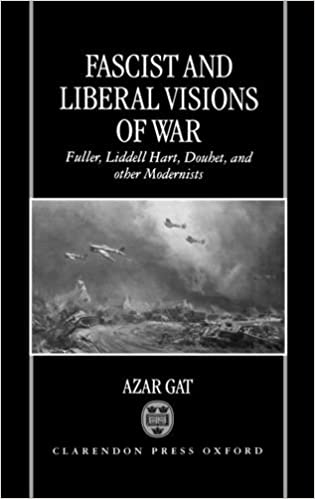

 |

|

The average rating for Fascist and liberal visions of war based on 2 reviews is 4 stars.
Review # 1 was written on 2014-12-29 00:00:00 Rocco Siffredi Rocco SiffrediWritten in 1980, Payne's book on fascism was considered one of the essential texts on the subject for many years. Even three-plus decades on, it is still a worthwhile read, though I found some of its analysis to be suspect. It's similar to Carsten's the Rise of Fascism in many ways, though Payne does a better job of trying to talk about generic fascism as an ideology, without necessarily linking it to a specific government or movement. As many people have observed, adequately defining fascism is a notoriously difficult job. Often people end up sort of throwing up their hands and suggesting that every incarnation of fascism is different and the ideology is inherently protean. There is some truth to this, but Payne makes a good faith effort to pinpoint some specific traits that he thinks are necessarily present in any fascist ideology. That effort makes up the first couple of chapters of the book. The rest is mostly dedicated to discussing specific fascist, proto-fascist, or other hard right political movements in various countries around the World War II time frame. All these chapters are pretty short, and we don't really scratch the surface of most of the movements he describes. Some of the terminology Payne uses seems to muddy the waters--in particular, his use of the term "authoritarian right" to apparently refer to traditional conservative parties struck me as odd (and I am not someone to normally bend over backwards to be fair to right-wing movements). Same with his use of the term "corporate" to refer to unifying or totalizing forces between a fascist movement and other societal institutions. And Payne's refusal to recognize fascism as a ideology of the right hampers his analysis and is the ultimate reason that he never achieves a convincing definition. I'm just embarking on an effort to do some serious reading about fascism as an ideology, and I think Payne was a pretty good starting place. If you're thinking of doing the same, you may want to check this book out. However, if you're in search of one book about fascism, then you'll probably want to look elsewhere. I'm told Robert O. Paxton's Anatomy of Fascism is now the gold standard, but I haven't read it yet, so can't say with authority. |
Review # 2 was written on 2015-05-31 00:00:00 Barton Rhodehouse Barton RhodehouseMuy equidistante de prejuicios y emotivismos. A partir de la evidencia histórica, amplia, trata de identificar y hacer reflexionar al lector sobre si existe una categoría ideológica de aquello que se suele llamar fascismo o si no hay tal cosa como una ideología genérica que pueda denominarse con esa etiqueta. Definir el fascismo no es una tarea fácil para el verdadero historiador. Un intento de taxonomía muy detallado, donde se explican las importantes diferencias (pero también puntos de encuentros, más coyunturales que doctrinales) entre la derecha autoritaria o conservadurismo autoritario, la extrema derecha/derecha radical o tradicionalismo, el corporativismo católico económico y político, y el fascismo / nacionalsindicalismo (donde es plantea la tesis de que posiblemente sea distinto del nacionalsocialismo). También se contrasta el llamado fascismo con conjuntos más amplios a los que pertenecería como el nacionalismo revolucionario y autoritario (el movimiento político más importante surgido en el siglo XX, que durante el siglo XX se ha asociado en gran parte a la izquierda), y las similitudes y diferencias con el comunismo (el leninismo en particular) y las raíces ideológicas marxistas (o post-marxistas) del fascismo / nacionalsindicalismo. También se contrastan las características del fascismo italiano y el nacionalsocialismo alemán con el concepto de totalitarismo, diferenciando los movimientos políticos-ideológicos de los regímenes o gobiernos; el resultado: el régimen de Mussolini no puede ser catalogado ni de fascista ni de totalitario (por raro que suene) puesto que no fue particularmente más autoritario que cualquier dictadura de la época, el régimen de Hitler sería protototalitario y pero con menos poder que el que se le atribuye en el relato vulgar, mientras que sólo la Rusia de Lenin y Stalin habría alcanzado a ser plenamente totalitaria. Lectura muy recomendable. |
CAN'T FIND WHAT YOU'RE LOOKING FOR? CLICK HERE!!!